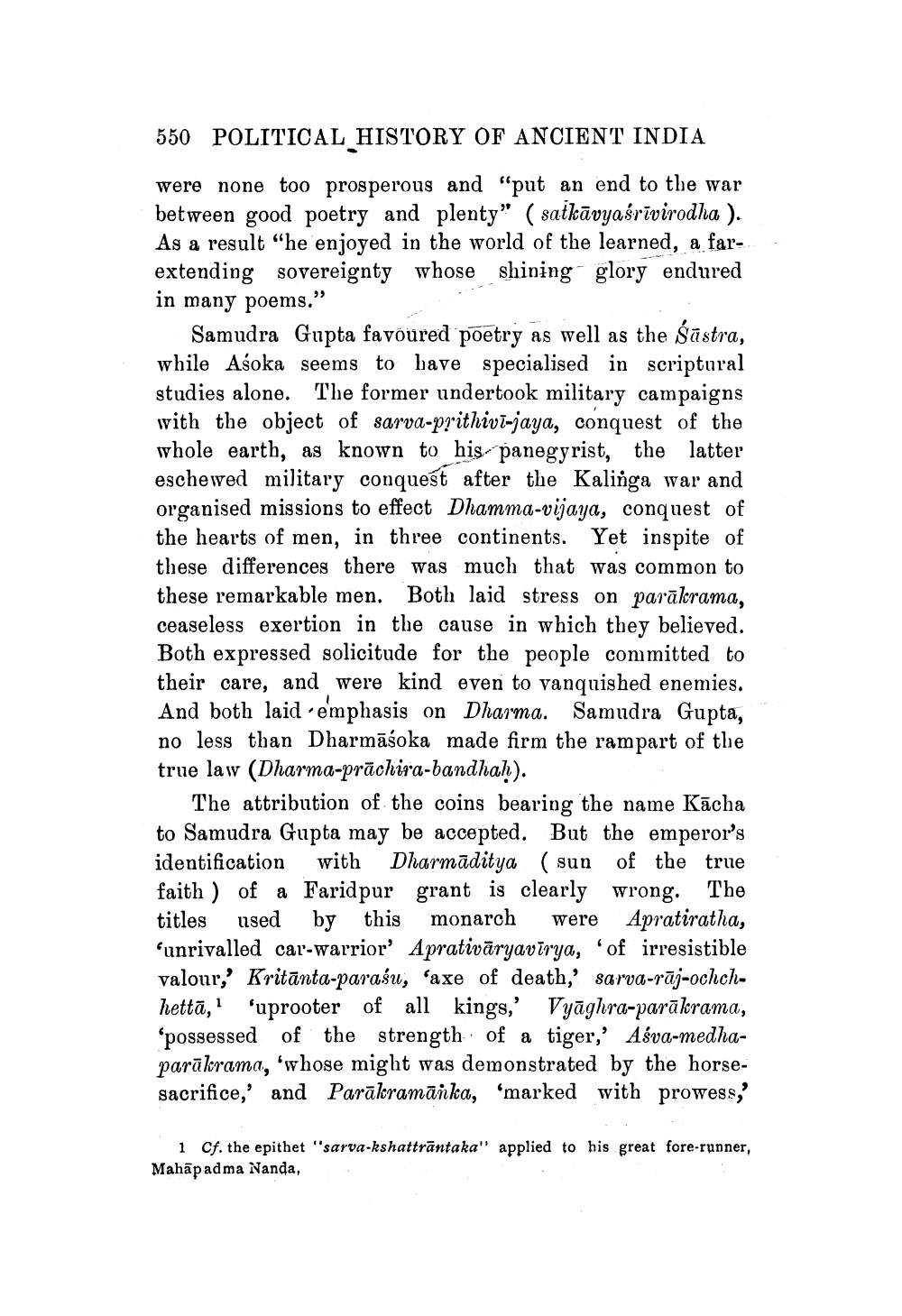________________
550 POLITICAL HISTORY OF ANCIENT INDIA were none too prosperous and "put an end to the war between good poetry and plenty" ( satkāvyasrivirodha ). As a result "he enjoyed in the world of the learned, a farextending sovereignty whose shining glory endured in many poems."
Samudra Gupta favoured poetry as well as the Šāstra, while Aśoka seems to have specialised in scriptural studies alone. The former undertook military campaigns with the object of sarva-prithivi-jaya, conquest of the whole earth, as known to his panegyrist, the latter eschewed military conquest after the Kalinga war and organised missions to effect Dhamma-vijaya, conquest of the hearts of men, in three continents. Yet inspite of these differences there was much that was common to these remarkable men. Both laid stress on parālorama, ceaseless exertion in the cause in which they believed. Both expressed solicitude for the people committed to their care, and were kind even to vanquished enemies. And both laid emphasis on Dharma. Samudra Gupta, no less than Dharmāśoka made firm the rampart of the true law (Dharma-prachira-bandhah).
The attribution of the coins bearing the name Kācha to Samudra Gupta may be accepted. But the emperor's identification with Dharmāditya ( sun of the true faith) of a Faridpur grant is clearly wrong. The titles used by this monarch were Apratiratha, Sunrivalled car-warrior' Aprativāryavīrya, 'of irresistible valour,' Kritānta-parašu, 'axe of death,' sarva-rāj-ochchhetta,' 'uprooter of all kings,' Vyāghra-parākrama, 'possessed of the strength of a tiger,' Ašva-medhaparākrama, 'whose might was demonstrated by the horsesacrifice,' and Parākramānka, 'marked with prowess,'
1 Cf. the epithet "sarva-kshattrāntaka" applied to his great fore-runner, Mahāp adma Nanda,




